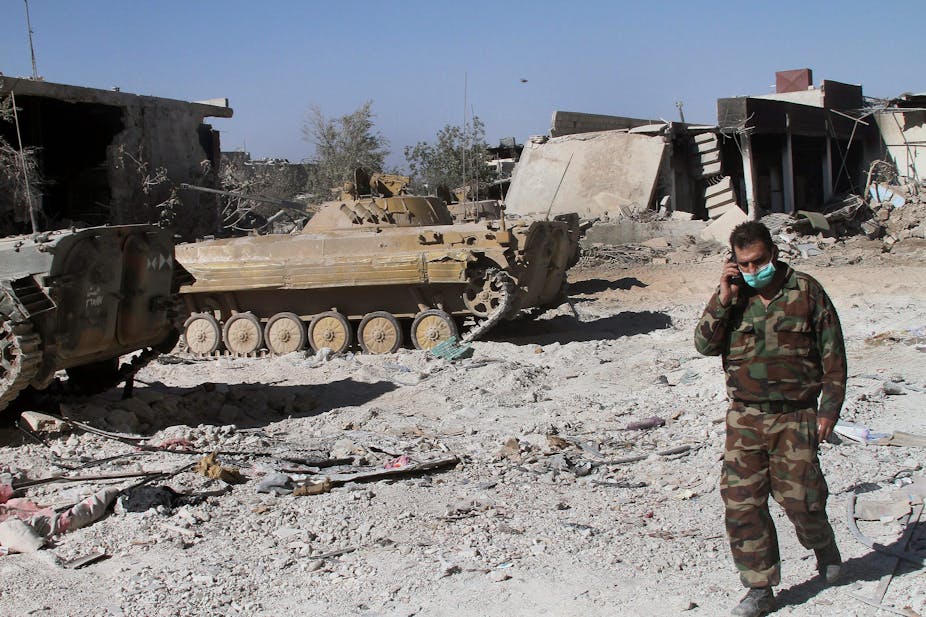As the federal election calls Australian attention to matters domestic, our diplomats are preparing for one of their most demanding briefs. On September 1, Australia becomes President of the United Nations Security Council.
Will Australia make the most of its opportunity? Or will politics at home overshadow this crucial role?
The Security Council is the world’s preeminent authority on matters of international security. It is accorded primary responsibility under the UN Charter for identifying threats to the peace and determining appropriate global responses.
The presidency of the Security Council offers a rare opportunity for Australia to promote its foreign policy agenda within this powerful body, usually by focusing the council’s 15 members on a particular issue of concern. Historically, council presidents have used their tenure to tackle such important issues as preventing the proliferation of weapons of mass destruction, protecting civilians in conflict, and promoting justice and the rule of law.
September is a big month at the UN. Not only will our diplomats need to contend with the distractions of the Australian election, they also face a demanding list of precarious international situations before the Security Council.
Last week’s allegations that the Syrian regime used chemical weapons against civilians will demand the council’s attention. However, the Syrian conflict exposes the deep political divisions between the council’s permanent members. Russia and China have repeatedly blocked proposals from the United States, Britain and France for action against the Syrian government. Russian support for an independent UN investigation of the chemical weapons attack is a positive move, but is not expected to lead to Security Council consensus on further action.
Meanwhile, the council is also managing fragile conditions in countries around the world. These include the Democratic Republic of Congo, where earlier this year the council authorised the UN’s first combat peacekeeping operation; the Central African Republic, where deteriorating political, security and humanitarian crises have left 1.6 million people in dire need of assistance, half of them children; and Sudan and South Sudan, where violent conflict and humanitarian crises have occupied the council in 17 meetings this year alone.
Further, the council currently oversees 31 peacekeeping and field-based political missions spanning the globe, including the hotspots of Afghanistan, Mali and Somalia.
Given the international turmoil and domestic election campaign, why does Australia take on the presidency in September? The simple reason is that the Security Council presidency rotates on a monthly basis according to which country comes next in the English alphabet.

Due to our favourable alphabetical position, Australia was actually the first ever president of the Security Council. On Thursday January 17, 1946, the council’s inaugural meeting was called to order by none other than Australian Norman Makin. The presidency is currently held by Argentina, which will hand us the presidential baton at 12.01 am on Sunday September 1. We will then dutifully pass it to Azerbaijan at 12.01 am on Tuesday October 1. The monthly presidential rotation also means that Australia will have a second opportunity to be president in November 2014.
So what can we expect Australia to do in September while it holds the presidency? As president, we will set the Security Council’s agenda, chair its meetings, sign off on formal correspondence and speak to the press as the official voice of the council. Savvy past presidents have also taken advantage of their position to promote Security Council policy refinements.
If Australia’s performance to date on the council is any indication, then the day-to-day business of the Security Council should proceed smoothly and effectively. Our delegation will undoubtedly fulfil its chairing responsibilities diligently and professionally. But it would be terrific if Australia could use its presidency to deliver more durable improvements in the Security Council’s effectiveness and credibility.
The scheduling of national elections for September was less than ideal for our Security Council presidency. Normally, a September presidency would be a golden opportunity to shape the council’s approach to pressing issues of the day. This is because heads of state and government from the UN’s 193 member states will converge on New York in the third week of September for the annual UN General Assembly leaders’ week.

An Australian prime minister could therefore preside over a leaders’ level Security Council meeting on their favoured cause, with potential attendees including presidents Obama, Putin, Jinping and Hollande, as well as UK prime minister David Cameron. This would represent a full house of the Permanent Five members.
In the past, September presidents have shone the spotlight on protecting children affected by armed conflict (Germany in 2012), preventing nuclear proliferation (United States in 2009) and maintaining peace and security in Africa (France in 2007).
At the time of writing, Australia has still not announced what its flagship presidency theme will be. Insiders suggest that a rabbit is waiting to be pulled out of the presidency hat. It might be promoting a greater role for women in peace-building, protecting civilians in Syria, strengthening the rule of law in countries emerging from conflict or banning illegal trade in small arms and light weapons.
In light of recent Syrian events and Australia’s own historic role in the successful conclusion of the Chemical Weapons Convention over 20 years ago, this would also be an opportune moment to devote renewed energy to arms control.
Let us hope that Australia makes the most of this opportunity to promote an important theme that will improve the effectiveness and credibility of the Security Council. If we can do this, then we might be remembered not just as a country that worked hard as council president, but as one whose hard work in that position made a difference.

